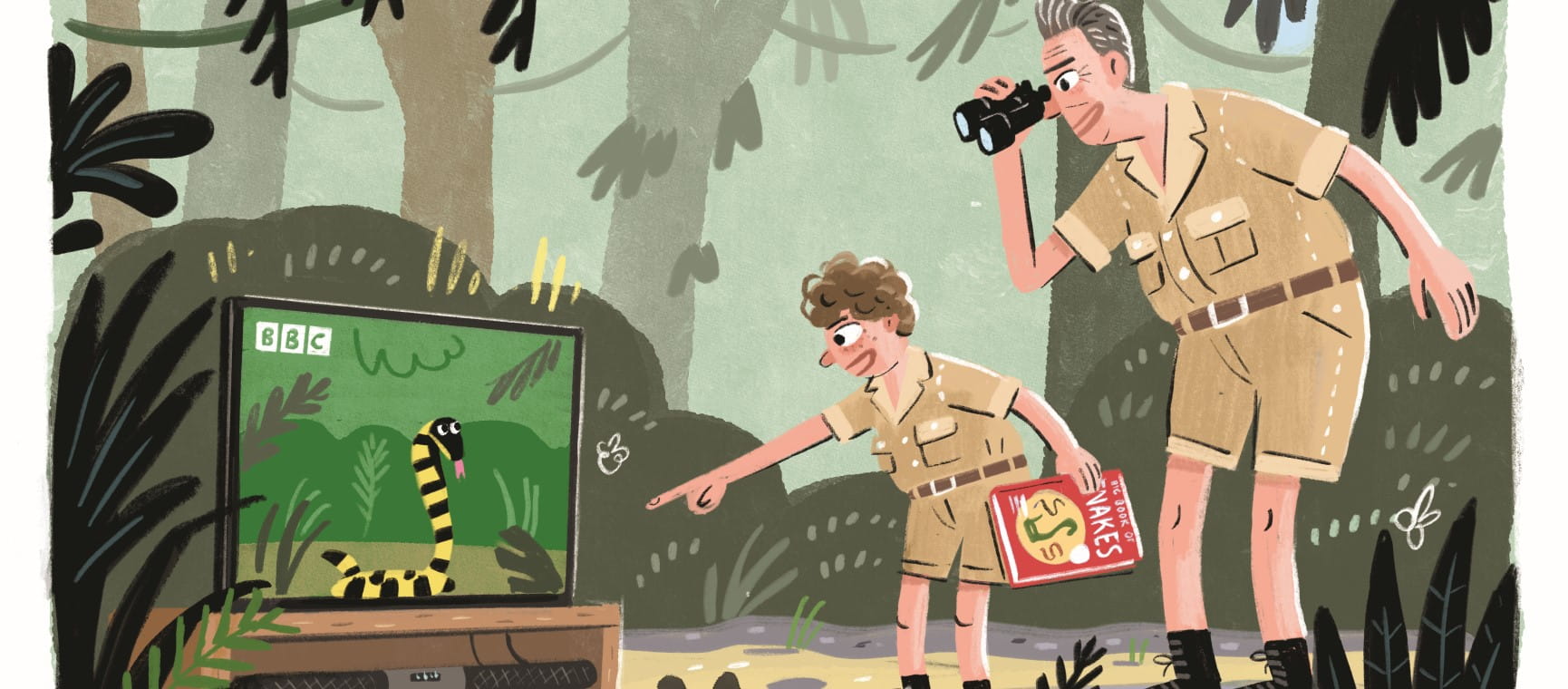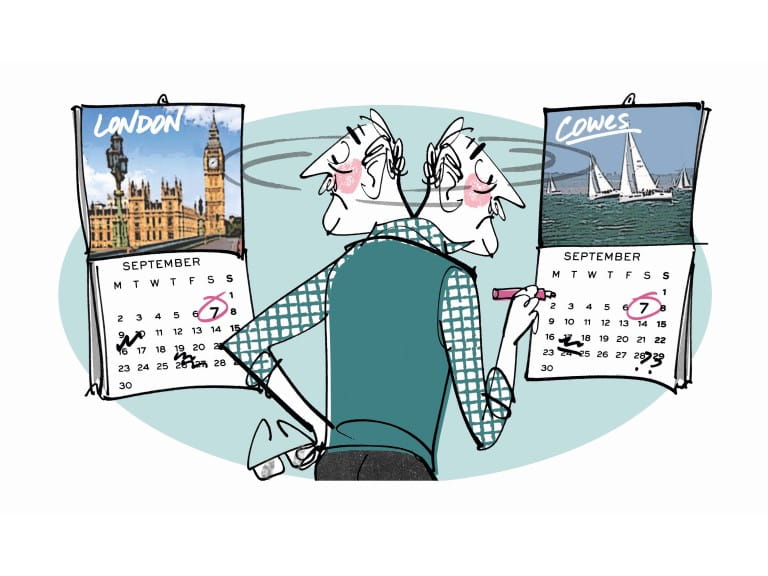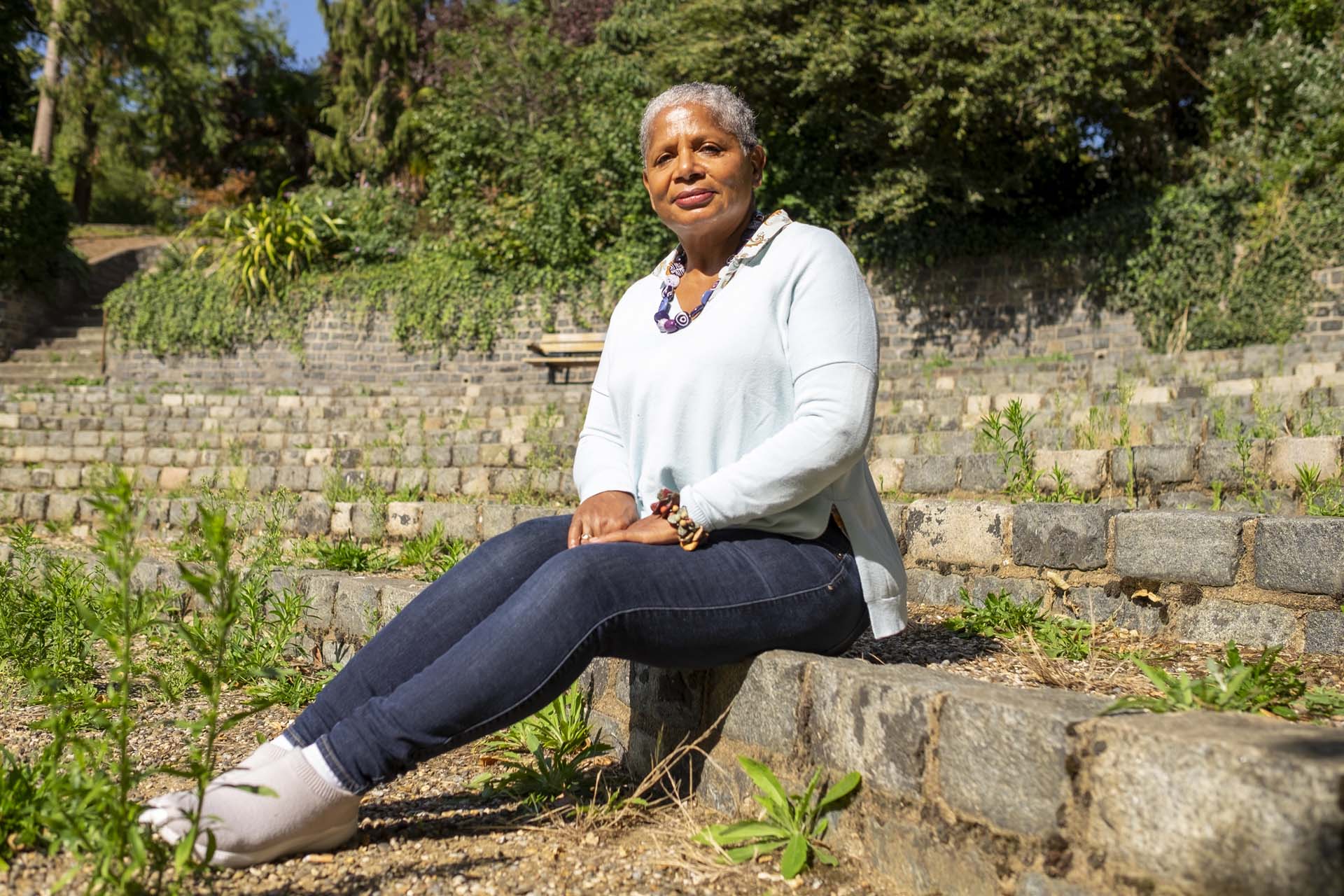
For all its ills and trolls, social media can sometimes spread a little happiness.
There is, for example, a lot of linguistic love out there. Whenever I post a word of the day, I’m reminded of how much we delight in talking about language.
Ask someone to make up a new collective noun, for example, and you’ll find such gems as "a foothurt of Lego", or "a cancellation of trains".
Of course, there is nothing that gets a conversation going more than the things people don’t like. It might be their least favourite word ("moist", very often), or the linguistic tic of the young that grates on our every nerve (using "like" 20 times in one minute, anyone?).
But if there is one subject that gets our goat more than anything else, it is American English. Judging by the "abominations" people complain to me about, such as "Can I get a cappuccino?", let alone the furore when Wordle chooses an Americanism, many of us are willing to line up alongside Samuel Johnson, who once declared, "I am willing to love all mankind, except an American."
Probably the number-one criticism I hear is that American English is just so… unsophisticated and obvious. Why do they have to call pavements "sidewalks", or autumn "fall"?
And what’s with all the letters they decide to drop in their spelling – as in honor, or rumor – or the words they fiddle with unnecessarily, such as center, or realize?
This is one occasion where I enjoy being the party pooper, because many of our assumptions about US English are a little misplaced. Sixteenth-century Britons, for example, were perfectly happy with the words sidewalk and fall, until they decided to go with some French flair and borrow "pavement" and "autumn" instead.
"Fall" is a rather poetic shortening of the "fall of the leaf", just as "spring" is short for "spring of the leaf".
The Norman conquerors are also responsible for adding a u to honor, a nod to the French honneur. As for the z in realize: that is the Oxford Dictionary’s (and, therefore, my) way, as it’s closer to the Greek root of such verbs.
And aluminum? That was our version when our scientists followed the example of platinum, before deciding magnesium was a better model.
Speaking of verbs, I love the way US English likes a strong one – the type that changes in the past tense (I buy, I bought, etc), as opposed to the weak ones that simply have an "-ed" stuck on the end.
So North Americans will say they "dove" into the pool and "snuck" into the room. For me there is a certain poetry in there.
I always squirm when I hear "I texted him yesterday" – couldn’t we have gone with "toxt" instead?
As for verb forms people really dislike, "gotten" comes top of the ugly list. But it dates back as far as Middle English, preserved in such expressions as "ill-gotten gains".
I could go on and on. A major beef about US English is how it extends everything unnecessarily, as in words like "transportation".
This was used in British English as early as the 17th century, until it made way for "transport" to avoid association with penal transportation. In the same way, we were merrily "obligating" people to do things in the 16th century.
Have I convinced you that we deserve to give US English another chance? Not entirely, I suspect, and that’s not to dismiss some Americanisms that really are annoying.
Prefacing every answer with a "So" is surely one of them.
And of course, there are times when US and British English feel like two very different languages. My favourite example must be an ad campaign devised by a vacuum cleaner brand, which proved hugely successful in Europe. The firm decided to take the same campaign to the US, only things didn’t go quite to plan.
Its slogan?
"Nothing sucks like an Electrolux".
Perhaps we aren’t quite as close as I thought.

Every issue of Saga Magazine is packed with inspirational real-life stories, exclusive celebrity interviews, brain-teasing puzzles and travel inspiration. Plus, expert advice on everything from health and finance to home improvements, to help you enjoy life to the full.

Our columnist wonders whether 24-hour TV is doing our grandchildren more harm than good?







Women in the intelligence services did more than just take notes and chide flirtatious spies - many had real power and ran missions.
